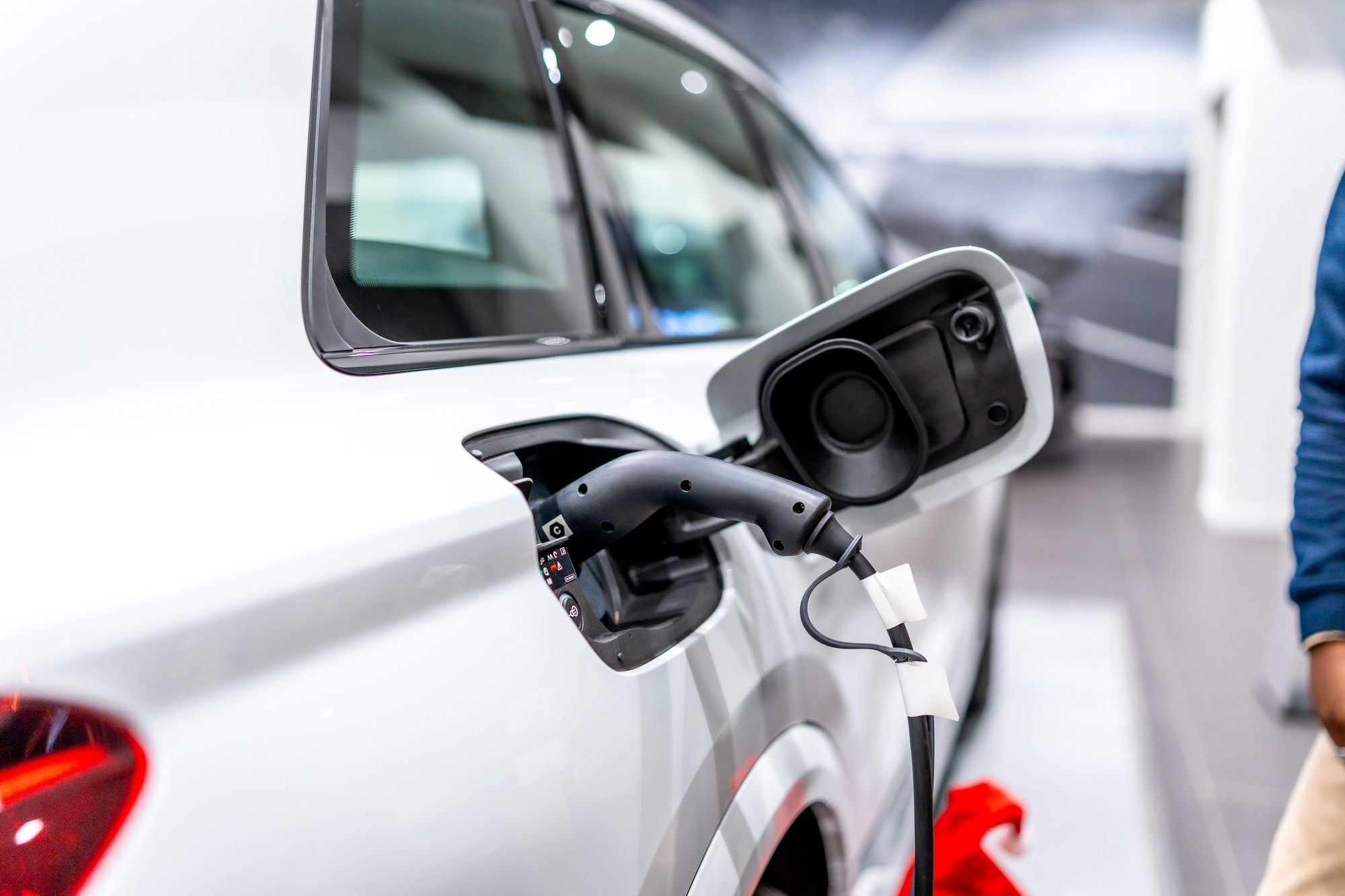Key Takeaways

- Understand Dealership Types: Familiarize yourself with the different types of car dealerships—new, used, franchised, independent, and specialty—to determine the best fit for your business model.
- Conduct Market Research: Thoroughly analyze your target audience and competitors to tailor your offerings and marketing strategies effectively.
- Create a Comprehensive Business Plan: Develop a strong business plan that includes market research, operational plans, financial projections, and legal requirements to guide your dealership’s success.
- Navigate Legal Requirements: Ensure compliance by selecting the appropriate business structure, registering your dealership, and obtaining necessary permits and licenses.
- Choose the Right Location: Select a strategic, accessible location with high visibility to attract potential customers and enhance sales opportunities.
- Focus on Marketing and Customer Experience: Establish a robust online presence and utilize both traditional and digital marketing strategies while emphasizing exceptional customer service to build loyalty and drive sales.
Starting a car dealership business can be an exciting venture filled with opportunities. If you’ve ever dreamed of owning a dealership and connecting people with their perfect vehicles, now’s the time to turn that dream into reality. With the right knowledge and strategies, you can navigate the complexities of the automotive market and carve out your niche.
In today’s competitive landscape, understanding the essentials of launching a successful dealership is crucial. From choosing the right location to building relationships with manufacturers, each step plays a vital role in your success. Whether you’re a seasoned entrepreneur or just starting out, this guide will provide you with the insights you need to kickstart your car dealership journey.
Understanding the Car Dealership Business

Understanding the car dealership business involves recognizing different types and current industry trends. This knowledge guides your startup strategies and helps establish a successful small business.
Types of Car Dealerships
- New Car Dealerships: These dealerships sell brand-new vehicles from specific manufacturers. They often receive incentives from manufacturers, which can improve profit margins.
- Used Car Dealerships: Used car dealers focus on pre-owned vehicles. They typically have lower startup costs, making them suitable for small business owners looking to enter the market without a major investment.
- Franchised Dealerships: Franchises operate under a brand’s name and often have access to exclusive inventory and marketing support. However, they require adherence to specific operational guidelines.
- Independent Dealerships: Independent dealers can sell both new and used vehicles without a franchise agreement. Flexibility in inventory and pricing often attracts diverse customers.
- Specialty Dealerships: These focus on specific types of vehicles, such as luxury, trucks, or electric cars. They cater to niche markets, which can lead to high-profit potential.
Industry Trends and Insights
- Digital Presence: Online platforms and social media impact customer engagement. Building a robust online presence is essential for attracting potential buyers and promoting inventory.
- Electric Vehicles (EVs): The demand for EVs continues to rise. Adapting your inventory to include eco-friendly options caters to environmentally conscious consumers.
- Technology Integration: Using technology in sales processes, such as virtual tours and online financing, enhances customer experience and streamlines operations.
- Customer Experience Focus: Exceptional customer service drives replay business and referrals. Implementing a hassle-free buying process builds loyalty and trust.
- Financing Options: Providing flexible financing solutions encourages more sales. Partner with banks or credit unions to offer competitive rates.
Understanding these types and trends prepares you for success in the car dealership business, helping you navigate challenges and maximize opportunities as you start your small business.
Conducting Market Research

Conducting thorough market research is vital for starting a successful car dealership business. Understanding the market landscape enables you to make informed decisions that contribute to your startup’s longevity.
Identifying Your Target Audience
Identifying your target audience helps tailor your marketing efforts effectively. Determine the demographics that make up your potential customer base, such as age, income level, and location. For example, younger buyers might prefer electric vehicles, while families may prioritize safety features and spaciousness. Gather data through surveys, focus groups, and online analytics. Analyze this information to define your niche, whether it’s luxury cars, fuel-efficient models, or used vehicles, ensuring your offerings align with customer preferences.
Analyzing Competitors
Analyzing competitors provides essential insights into the market. Research local dealerships to evaluate their strengths and weaknesses. Observe their pricing strategies, marketing techniques, and customer feedback. Identify gaps in their offerings that you can capitalize on. For instance, if a competitor lacks a robust digital presence, this presents an opportunity for your startup to excel in online vehicle sales. Utilize tools such as SWOT analysis (Strengths, Weaknesses, Opportunities, Threats) to clarify your positioning against current competitors in the automotive market.
Creating a Business Plan

A comprehensive business plan forms the foundation of your car dealership startup. This plan helps you understand your market, define your strategy, and ensure a structured approach to operations.
Essential Components of a Business Plan
- Market Research: Understand customer demographics and preferences to identify your target audience. Gather data on competitors and industry trends to enhance your positioning.
- Business Strategy: Outline your dealership type (independent or franchised) and the range of vehicles you plan to sell. Include marketing strategies that will resonate with your audience, leveraging both traditional and digital channels.
- Operational Plan: Detail the roles of personnel, daily operations, and the customer service approach that fosters loyalty. Include logistics related to inventory management and supplier relationships.
- Legal Structure: Decide on the legal structure of your dealership, whether LLC, corporation, or sole proprietorship. This choice affects your liability, taxes, and compliance requirements.
Financial Projections and Funding Options
- Startup Costs: Calculate initial expenses, including premises, inventory, licenses, and marketing. Estimate both fixed and variable costs to gauge financial readiness.
- Funding Sources: Explore various funding options. Consider traditional bank loans, Small Business Administration (SBA) loans, or private investors. Investigate local grants or incentives for small business startups.
- Revenue Projections: Project monthly and annual revenue based on market analysis. Account for seasonal fluctuations in vehicle sales and customer purchasing patterns.
- Break-even Analysis: Determine when your dealership will become profitable. This calculation helps you manage cash flow effectively and prepare for potential financial challenges.
By focusing on these critical components and financial aspects, you create a solid framework for your car dealership, positioning yourself for success in a competitive market.
Legal Requirements and Licensing

Starting a car dealership involves several legal requirements and licensing processes that ensure compliance and support your small business’s legitimacy.
Business Structure and Registration
Choose your business structure wisely, as it impacts taxes, liability, and operations. Common options for a car dealership include sole proprietorships, partnerships, limited liability companies (LLCs), and corporations. Each structure has distinct advantages and disadvantages. For example, LLCs offer personal liability protection, while corporations may provide comprehensive tax benefits. After deciding on a structure, register your business with the appropriate state authorities and obtain an Employer Identification Number (EIN) through the IRS. This number is crucial for tax purposes and opening a business bank account.
Obtaining Necessary Permits and Licenses
Obtaining the right permits and licenses is crucial to operate legally. Start by applying for a dealer license specific to your state. For instance, in Texas, you’ll need a General Distinguishing Number (GDN) from the Texas DMV, which requires completing a dealer training course and establishing a compliant business location. The application mandates details like your business name, location, ownership information, and possibly an Assumed Name Certificate and Certificate of Incorporation.
Additionally, a surety bond is often necessary to guarantee compliance with state regulations. The bond amount varies, depending on your state’s requirements.
Following these steps ensures your car dealership startup operates within legal guidelines, paving the way for successful business ventures in the automotive market.
Location and Inventory Sourcing

Selecting the right location and sourcing inventory are essential components in how to start a car dealership business. These factors directly influence customer access and overall sales potential.
Choosing the Right Location
Choosing a strategic location is vital for attracting customers. Consider the following aspects:
- Accessibility and Visibility: Pick a site that offers easy access and high visibility. Locations near main roads or in areas with heavy traffic help draw in potential buyers.
- Safety and Security: Opt for a safe area, characterized by low crime rates and adequate public lighting. A secure environment protects your inventory and promotes customer confidence.
- Neighborhood: Select a neighborhood known for automotive activities, such as existing dealerships or mechanic shops. This familiarity helps you tap into an audience already interested in car-related services.
Building Partnerships with Manufacturers
Building solid partnerships with manufacturers greatly enhances inventory sourcing. Here are key points to consider:
- Manufacturer Relationships: Establish direct relationships with manufacturers to gain favorable pricing and exclusive access to vehicle models. Solid ties lead to better inventory choices and competitive advantage.
- Financing Options: Explore financing options offered by manufacturers for purchasing inventory. Many manufacturers provide support programs that help mitigate financial strain, which is vital for a startup.
- Sales Training: Utilize training programs from manufacturers that help you and your sales team understand their products better. Knowledgeable staff can significantly increase customer trust and lead to higher sales.
These strategies play a critical role in successfully launching your car dealership as a small business. Focusing on location and sourcing will position you to drive growth and customer satisfaction in a competitive market.
Marketing Your Dealership

Effective marketing is essential for your car dealership’s success. Implementing the right strategies can significantly enhance visibility, attract customers, and drive sales in your small business.
Establishing an Online Presence
Establishing a strong online presence is vital for your dealership. Create a user-friendly website that showcases your inventory, provides detailed vehicle information, and includes easy-to-navigate features. Optimize the site for search engines to improve visibility. Engage in social media platforms to connect directly with potential customers. Share promotions, customer testimonials, and community involvement to foster trust and build relationships. Implementing a responsive design ensures customers can access your site on various devices, which enhances user experience.
Utilizing Traditional Marketing Strategies
Utilizing traditional marketing strategies can complement your online efforts. Implement personalized direct mail campaigns to reach your local audience with targeted offers. Segmenting your audience using data analytics enhances response rates. Leverage targeted email marketing to communicate effectively with customers. Personalize content based on customer behavior and preferences. Use A/B testing to refine your approaches for optimal email performance. Enhance customer engagement through SMS and MMS marketing, sharing concise messages and promotional content, ensuring you obtain consent first. Consider retargeting campaigns to re-engage potential customers who previously showed interest in your dealership.
Managing Operations

Managing operations effectively is crucial for your car dealership’s success. Focus on hiring the right staff and implementing effective sales strategies to drive growth.
Hiring and Training Staff
Hiring qualified staff enhances your dealership’s performance. Look for individuals with automotive knowledge and strong communication skills. Conduct interviews to assess their fit for your dealership’s culture and values. Once hired, invest in training programs to familiarize your team with the vehicles, customer service techniques, and sales processes. Regular workshops and ongoing training sessions keep your staff updated on industry trends and best practices, ensuring they remain competitive.
Implementing Effective Sales Strategies
Implementing effective sales strategies leads to higher conversion rates and customer satisfaction. Utilize techniques such as consultative selling, where staff focus on understanding customer needs before presenting vehicle options. Develop promotional campaigns, including limited-time offers or financing deals, to attract potential buyers. Create a seamless online experience, allowing customers to browse inventory, schedule test drives, and initiate financing applications easily. Utilize data analytics to assess sales performance and customer preferences, allowing for adjustments in your approach. By prioritizing these strategies, you can establish a strong foundation for your small business.
Conclusion

Starting a car dealership can be a rewarding venture if you approach it with the right strategies and knowledge. By understanding the market and your target audience, you can position yourself for success.
Focus on building strong relationships with manufacturers and prioritizing exceptional customer service to stand out in the competitive landscape.
Remember to stay adaptable and embrace industry trends, especially the shift towards digital marketing and electric vehicles. With careful planning and execution, you can create a thriving dealership that meets the needs of your customers and drives long-term growth.
Frequently Asked Questions

What are the key elements needed to start a car dealership?
To start a car dealership, key elements include selecting an appropriate location, establishing relationships with manufacturers, conducting thorough market research, creating a comprehensive business plan, and ensuring compliance with legal requirements.
What types of car dealerships can I start?
You can start various types of car dealerships, including new, used, franchised, independent, and specialty dealerships, each offering unique characteristics, target markets, and advantages.
How important is market research for a car dealership?
Market research is crucial as it helps identify your target audience, analyze competitors, and uncover market gaps. This information enables tailored marketing strategies and enhances the likelihood of success.
What should I include in a business plan for a car dealership?
A business plan should include market research, business strategy, operational plans, financial projections, and information on legal structure and compliance to provide a solid foundation for your dealership.
What legal requirements do I need to consider when starting a dealership?
Legal requirements include selecting a business structure, registering the business, obtaining an Employer Identification Number (EIN), and acquiring necessary permits and licenses, such as a dealer license specific to your state.
How can I choose the right location for my dealership?
Choose a location based on factors such as accessibility, visibility, safety, and the surrounding neighborhood. A strategic location can significantly impact your dealership’s visibility and customer traffic.
How can I effectively market my car dealership?
Effective marketing includes establishing a strong online presence with a user-friendly website, engaging on social media, and utilizing traditional methods like personalized direct mail and targeted email campaigns to reach potential customers.
Why is customer service important for a car dealership?
Exceptional customer service drives sales, builds loyalty, and enhances your dealership’s reputation. Satisfied customers are more likely to return and refer others to your business.
What operational strategies can improve my dealership’s success?
Effective operational strategies involve hiring knowledgeable staff, investing in training, employing consultative selling techniques, and utilizing data analytics to enhance customer experience and drive business growth.
Image Via Envato: mstandret, borodai, DragonImages, RossHelen, nebojsa_ki, Unai82, Fahroni, FabrikaPhoto, duallogic, nd3000



